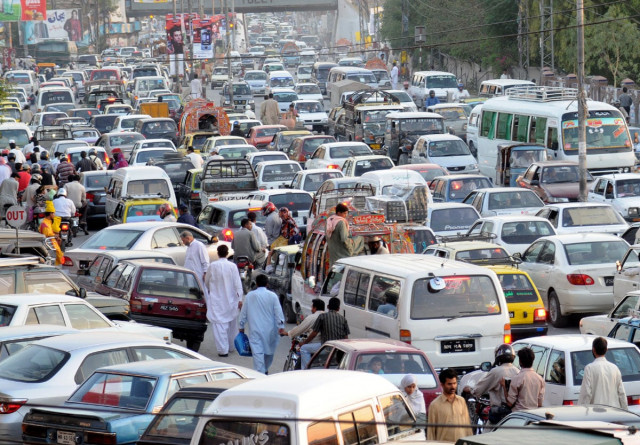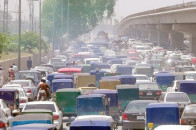The longest journey
Waiting times have ballooned to 90 minutes and the number of buses plying Lahores roads cut by three-quarters.

According to the Urban Transport Owners Association (UTOA), there are just 200 buses operating in Lahore now, down from 800 buses in 2007. Under Lahore Transport Company (LTC) rules, buses are supposed to run on each route every five to 15 minutes. Now at some stops commuters end up waiting 90 minutes for the next bus.
Transporters say they are running so few buses because they are losing money for two main reasons: the government has not been giving them the subsidy they promised; and unlicensed vans continue to illegally operate as public transport in Lahore.
According to the UTOA, some of its members are losing Rs3,000 per day per bus in diesel costs alone.
“The government in 2006 sanctioned operational subsidies for transporters, but that year we were given only 75 per cent of it,” said Muhammad Arshad Niazi, a transporter and the general secretary of the UTOA.“The government has not paid subsidies for 2007-2009 at all,” he added.
The government was supposed to give transporters Rs1,600 per bus per day, he said.
“The government has also failed to stop illegal vehicles. Those vehicles cause financial losses to buses, especially during peak hours,” Niazi said.
Tasneem Noorani, the chairman of the LTC, said the company was trying to improve bus services. “We are doing an operation against illegal vehicles and devising a system for payment of subsidies for transporters that they have not been given since 2006,” he said.
Buses short
According to UTOA data, New Khan Metro Bus was supposed to operate 246 buses on city routes to maintain optimum waiting times; it operates just 40. The Premier Bus Service operates 70 buses out of the required 246; BHK Transport Service 15 out of 44; Niazi Express Bus 5 out of 52; Makks Metro 10 out of 40; Baloch Transport Company 8 out of 22; and Daewoo 30 out of 67.
The Regional Transport Authority has identified 23 routes where bus services are needed, but the government has not reached an agreement with any transport company to ply buses on these routes.
The poor pay
The city’s middle and lower classes, the ones who depend on public transport, are suffering as a consequence of the falling number of buses.
“Labourers are being badly affected by the low bus frequency,” said Labour Party leader Afzal Goraya. “Employers cut their wages for being late. This class cannot afford rickshaws. The government has failed to regulate transport facilities and the lower class has to pay high fares for late buses.”
A student said the waiting time had added an hour to his journey to college. “I get to the bus stop two hours early,” said Tanveer Cheema. “I wait for an hour for the bus and it takes me to the [Punjab University] New Campus in an hour or 45 minutes from Ravi Road.”
Naveed Iftikhar, a working woman, said waiting for the bus had added much stress to her daily life. “I feel irritated and unable to do anything when I get home after all the waiting at bus stops,” she said.
Published in The Express Tribune, October 7th, 2010.



















COMMENTS
Comments are moderated and generally will be posted if they are on-topic and not abusive.
For more information, please see our Comments FAQ